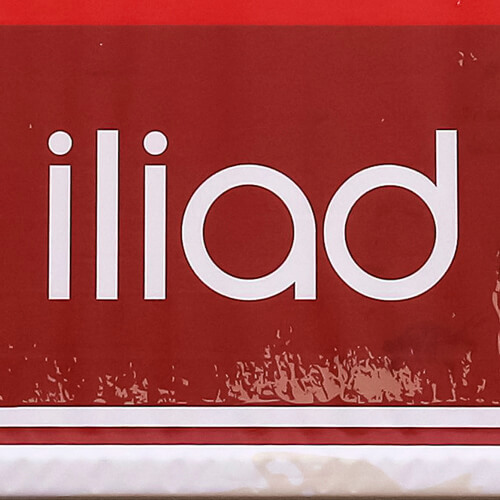
The France-based Iliad Group can rarely be accused of lacking in confidence.
From turning the French telecoms market on its head following the launch of a low-cost mobile plan under the Free brand in 2012, to performing a similar trick with Iliad Italia in 2018 and then mopping up operators in Poland, Iliad has tended to act as market disruptor and enfant terrible wherever it goes.
The group is now claiming that it also has an organic growth profile "unlike any other telco in Europe" – although with the current market challenges, such a feat is not as hard to achieve as it once was.
Figure 1:  True or false? The now delisted France-based group claims it has an organic growth profile "unlike any other telco in Europe".
True or false? The now delisted France-based group claims it has an organic growth profile "unlike any other telco in Europe".
(Source: REUTERS / Alamy Stock Photo)
Iliad said pro forma like-for-like growth (calculated as if Poland-based mobile operator Play had been consolidated as from January 1, 2020) for services revenues reached 5.9% in the third quarter (Q3) of 2021, following 6.3% growth in the second quarter.
Thomas Reynaud, CEO of Iliad group, went even further by claiming the Q3 results demonstrate that Iliad "boasts unrivaled growth potential."
"We are increasing our market share in each of our three host countries. In France, take-up of fiber is accelerating and we now have more fiber subscribers than DSL subscribers. Our network rollout policy in Italy is paying off, with a sharp increase in EBITDAaL expected in the second half of the year. And in Poland, a year on from the acquisition, the consolidation of Play can be described as a success," Reynaud said.
Growth play
Consolidated revenue increased 34.6 % to €1.91 billion (US$2.17 billion) in Q3 2021, attributed to the consolidation of Play since November 18, 2020 and "solid growth for Free in France and Iliad in Italy."
Excluding Play, Q3 consolidated revenue was 6.3% higher than in Q2 (6.6% excluding sales of devices).
For the first nine months of 2021, consolidated revenue came in at €5.63 billion ($6.4 billion), up 34% year on year, or 5.4% excluding the consolidation of Play.
The group's active subscriber base grew by 634,000 in the third quarter of 2021 – 552,000 new mobile subscribers and 82,000 fixed. At end-September 2021, Iliad group had 40.82 million total active subscribers (33.7 million for mobile and 7.1 million for fixed).
In France, revenue increased by 4.3% to €1.31 billion ($1.48 billion) in Q3 2021 and by 3.3% in the first nine months of the year to €3.85 billion ($4.37 billion). Free is closing in on 13.5 million mobile subscribers here, while fixed subscribers are almost 6.9 million, of which over 3.5 million are fiber subscribers.
Want to know more about 5G? Check out our dedicated 5G content channel here on
Light Reading.
Free said it has switched on nearly 2,000 new 4G sites and more than 1,800 5G sites since the beginning of 2021, while its population coverage is now 99% for 3G and 4G, and over 70% for 5G. Furthermore, the number of connectible fiber sockets increased by 5.8 million over 12 months, totaling 24 million at end-September 2021.
In Italy, Iliad Italia has already picked up a 10.5% market share and 8.2 million subscribers.
As it did in France, Iliad has caused significant disruption here, sparking a mobile price war and prompting rival operators to set up low-cost sub-brands including Kena from Telecom Italia, ho from Vodafone Italy and VeryMobile from WindTre.
Meanwhile, Iliad's founder Xavier Niel has recently taken the group private. The operator's shares were finally delisted from Euronext Paris from October 14 following a squeeze-out offer.
Since then, Iliad has entered the high-yield debt market, placing a €3.7 billion ($4.2 billion) four-tranche bond issue with European and American investors.
Related posts:
— Anne Morris, contributing editor, special to Light Reading
Read more about:
EuropeAbout the Author(s)
You May Also Like










